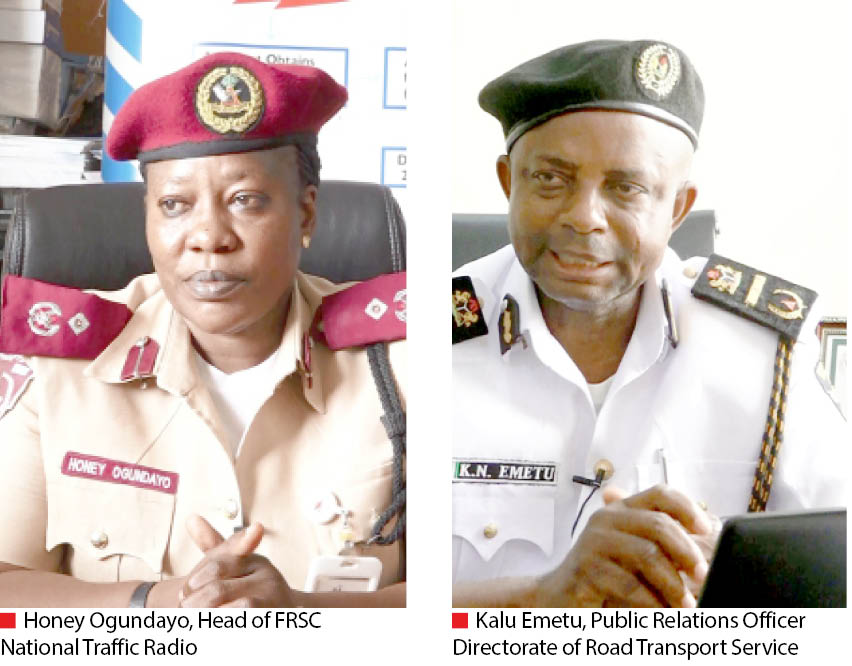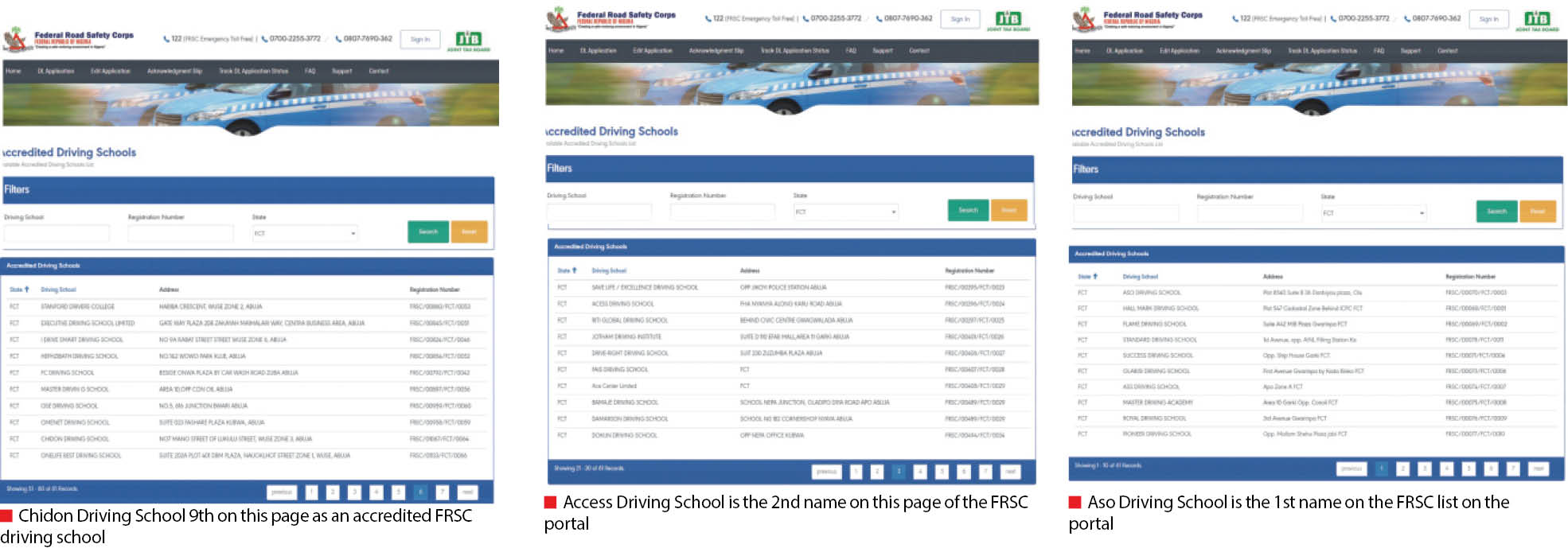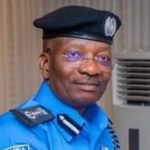In this investigation, a Daily Trust Saturday reporter went undercover to unmask the law enforcement agents and Federal Road Safety Corps (FRSC)-designated driving schools within Abuja, Nigeria’s Federal Capital Territory (FCT) that are working together to compromise the country’s driving standards, thus contributing to road accidents.
Concealing a recording device, our reporter went round the streets of Abuja, Nigeria’s Federal Capital Territory, in an attempt to test the tripartite arrangement of the country’s driver’s licence procedure and how underage and unqualified drivers find their way behind the wheels.
Visiting the first driving school to enquire if this reporter, with no driving experience, could be issued a driving certificate, one of the first requirements for a driver’s licence by the FRSC, the staff expressed readiness to subvert the process.
“Don’t worry, we can issue you the certificate. Since you came through us, there is no problem,” a staff of a driving school accredited by the FRSC, who simply identified himself as Hamza said, even when he was repeatedly told that this reporter did not have any driving experience.
- 39,220 obtain 5 credits in Maths, English in NABTEB exams
- Meet Gambo Haruna, Kano widow pushing wheelbarrow to feed 6 children
This readiness to circumvent the process was visible even among staff members of the Directorate of Road Traffic Services (DRTS), popularly known as Vehicle Inspection Officers (VIO), who are mandated to engage in the training and testing of drivers before they are issued licences.
“No need to attend any driving school,” a staff of the VIO had told this reporter and offered to ensure that he went through a seamless process to get the licence that would authorise him to join the country’s numerous but undocumented and unqualified drivers.
Statistics by the World Health Organisation revealed that an estimated 1.3million people around the world die annually as a result of road traffic accidents, with Africa leading with the highest death rates. Nigeria is topping the African list with the most traffic accidents causing fatalities.
At the 7th United Nations Global Road Safety Week in May, the corps marshal of the FRSC, Dauda Biu, said over 40,000 people died annually in road accidents, and that road traffic crashes were the leading cause of deaths and disability in the country. Nevertheless, data from the FRSC Statistics-Digest showed that over 11, 361 persons had been killed and 65,814 wounded due to road accidents in 2022.
But the FRSC identified human factor as the major cause of these accidents.
Speaking with Daily Trust Saturday, Honey Ogundayo, the head of the FRSC National Traffic Radio said, “Ninety per cent recklessness, carelessness and not thinking about other road users are part of the human factors that cause road accidents.”
In Nigeria, the driver’s licence, a permit produced by the FRSC, is the only recognised document that certifies an individual to drive a vehicle on any road. To secure this licence, the Board of Internal Revenue, FRSC and DRTS in the FCT work in a tripartite arrangement.
However, Daily Trust Saturday reports that corrupt government officials connive with FRSC-accredited driving schools to hike the licence fees and subvert the process by issuing the documents to unqualified drivers within Nigeria’s Federal Capital Territory, thus contributing to road accidents.
The process of obtaining a driver’s licence
Information obtained from the FRSC portal revealed that a three-year valid driver’s licence cost N10,000 while that of five years cost N15,000. However, Ogundayo, who spoke to our reporter on behalf of the FRSC, said there was an update on the fee, which is yet to be updated on the portal.
She said N10,350 was the government-approved fee for a three-year valid driver’s licence and N15,450 for that of five years.
To get a step-by-step process of obtaining a licence, our reporter reached out to the appropriate government agencies, where he was told that it was a tripartite arrangement that involves designated driving schools, the Board of Internal Revenue and the VIO.
Findings from the FRSC portal revealed that there are 91 FRSC-approved driving schools within the FCT.
Speaking on the tripartite arrangement, the head of the FRSC National Traffic Radio, Ogundayo said, “You must visit a driving school and have 26 sessions with them. When you pass the 26 sessions, then you can pick up a form from the Board of Internal Revenue.”
Ogundayo explained that visiting the VIO was equally necessary to test the applicants’ driving skills, while the FRSC produces the driver’s licence.
“No certified FRSC driving school can process a driving certificate for an applicant who does not undergo the driving training and testing. It means that you are robbing the name of the FRSC in the mod, which the Corp Marshal will frown at,” she added.
Acquiring a driver’s licence is a process and “you cannot jump from one to another,” she said and assured that FRSC-accredited driving schools would do the right thing.
“They will not just collect money and give somebody a certificate without passing through the process,” she reiterated.
At the DRTS, Kalu Emetu, the public relations officer, said that to be a licensed driver, one must pass a driving test administered by the Service.
“We always encourage our staff to do the right thing. We have our operational guideline and we don’t expect anybody to go outside it,” Emetu said.
He added that it is the reason the DRTS created the Department of Driving, Testing and Training. “When we test you and notice that you are not fit to be on the road, we will not give approval,” he said.

How FRSC-accredited driving schools undermine process
To test the tripartite arrangement, this reporter randomly selected three out of the 91 FRSC-accredited driving schools in the FCT to find out if an individual without any driving experience could access the driving school certificate for the licence process.
On a visit to Access Driving School, with FRSC number FRSC/00296/FCT/00244 at FHA, Nyanya, Abuja, this reporter posed as an applicant in need of a driver’s licence even though he did not have any driving experience.
“As far as you come through us, nothing will happen. We will be the ones to help you do the online test. All that is needed is N30,000 for a five-year valid licence, Hamza, a staff of the FRSC-accredited driving school said.
Moving onto another driving school, our reporter met Simon at Aso Driving School, with FRSC number FRSC/00070/FCT/0003 at Central Area. He explained how the driving school would use its influence as a licensed gatekeeper to ensure that our reporter’s name was included on the list of those qualified to be issued licences even though he did not have any driving experience.
“They will assume that all the candidates we put on the list are drivers,” he said.
He demanded N35,000 for the school to circumvent the process and ensure that this reporter is issued a driver’s licence, but warned that acquiring the licence would be at the reporter’s risk.
The case was, however, different at Chidon Driving School, with FRSC number FRSC/ 01067/FCT/0064 in Zone 3. A staff of the driving school, identified as Philomena, was resilient as she insisted that our reporter must participate in driving classes before the driving certificate would be awarded. Philomena engaged our reporter on a discussion on why learning to drive was paramount before proceeding with the licensing process.
When informed about how driving schools were ready to compromise the standard, the head of the FRSC National Traffic Radio, Honey Ogundayo expressed doubts that an accredited diving school would engage in illegal processing and issuance of driving certificates.
However, all driving schools sampled and visited were from a list of accredited schools uploaded by the FRSC on its website. On the website, there are two documents, one pasted and unnumbered, while the other is a pdf format. Our correspondent verified that, but for the arrangement of names, the two lists contain the same names. On the first list, Aso Driving School appeared as the first school on the first page, while Access Driving School appeared as number two on the third page. Chidon Driving School, which insisted on following due process, is the 9th school on the sixth page of the FRSC site.
On the pdf list, it was noticed that Access Driving School is listed as number two, while Aso Driving School is number four and Chidon Driving School is number 53.
VIO officials also compromise standard
“If you pay N30,000 now, the moment the certificate is out I will call you and let’s go. I will stand beside you and tell them that you are my brother and they should capture you. There will be no test or interview. No be we de handle everything?” an official of the DRTS in FCT said.
The official, popularly called Oga Aaron, is a Vehicle Inspection Officer at the Nyanya unit in Abuja and had boldly told this reporter that he could boycott the driving school, driving tests and CBT in order to secure a driver’s licence.
In late April when this reporter visited the VIO office opposite Nyanya market as a driver’s licence applicant, Oga Aaron walked him to his office, where he displayed samples of driving certificates he claimed to have facilitated for others. He assured that he could boycott driving schools and get licences.
He said, “All these ones are for our friends. They did not go to any driving school; there is no need. You will just give me your data (information) and I will forward it. Inasmuch as you have told me the truth, I will back you up,” he said, pointing at the certificates.
Again, this reporter reiterated that he had no driving experience, but the government official assured him that as soon as the certificate was printed he would send him to a particular driving school for capturing. He requested N30,000 to process a five-year valid driver’s licence and N25,000 for that of three years.
When Daily Trust Saturday visited the DRTS in Abuja and presented its findings, they promised to launch an investigation into the matter. The public relations officer, Kalu Emetu, said they would sanction anyone caught in such acts, but stressed, “We are not so autonomous to hire and fire. The FCT Administration hires for us. So, when disciplinary cases come up, we do our investigation and submit our report to the Transport Secretariat.”

 Join Daily Trust WhatsApp Community For Quick Access To News and Happenings Around You.
Join Daily Trust WhatsApp Community For Quick Access To News and Happenings Around You.


